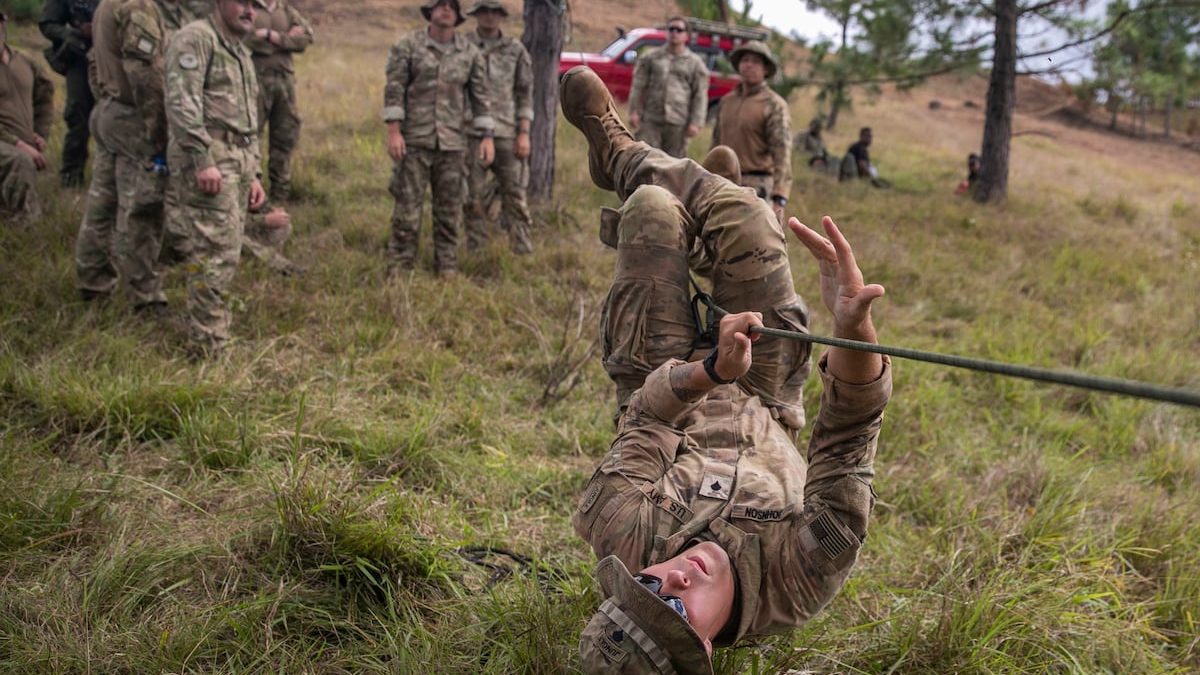BLACKROCK CAMP, Fiji — It was clear the visit was a success when the pig came out.
Lloyd Austin watched a welcome ceremony at a military base near Fiji’s capital of Suva, having become the first American defense secretary to visit the island. His trip was itself a message, giving heft to negotiations over basing and logistics access for the U.S. military.
But first came the hourlong ritual, where Fijian soldiers in military and traditional dress presented a whale tooth and a roasted pig between chants and dancing. Later he watched a rugby match, having played the sport himself at West Point.
The trip was a mix of strategic and personal that has defined his time as secretary in the region.
Fiji is his last stop on a trip across the region to meet with allies for his last time as secretary. In his four years, Austin has helped recast America’s military role and presence in the Indo-Pacific. Its allies are working more often with each other, and America is working more closely with its allies.
This approach has allowed the U.S. to spread out its forces into smaller groups, long a priority in a region concerned by China’s rapid military buildup. To help defend against the increasingly capable People’s Liberation Army, the Pentagon wants its forces farther forward than the U.S. west coast or Hawaii.
But it doesn’t want them to be concentrated into only a few positions, like Japan and South Korea. The more densely packed they are, the more vulnerable they are to China’s stocks of missiles and rockets.
In response, the U.S. has signed new basing agreements with old and new allies, such as the Philippines, Australia, Papua New Guinea and small islands in the Pacific.
Fiji is the latest part of that effort.
The U.S. is negotiating two separate deals with the island government in Suva. The first is a status of forces agreement, or a SOFA, pronounced like the couch. This would allow the Pentagon to station troops there either permanently or temporarily, though U.S. defense officials speaking before the visit said they didn’t know how many would be there.
The second is an acquisition and cross service agreement, or ACSA, a narrower deal that would allow the U.S. to leave stores of military equipment on the island. Austin will sign this pact on the second day of his visit before departing back for Washington.
While reshuffling its forces around the region, the Pentagon is also opening more sites to repair weapons in the theater, rather than needing to pull them farther and longer away from a fight.
The logistics deal is meant to help with such far-flung supply lines, which could be under threat during a conflict.
Fiji is far closer to China than the U.S. mainland but by no means close, still thousands of miles away. And while it’s one of three Pacific Island countries with a standing military — also one America hosts an exercise with each year — that military is one of the smallest in the world.
Regardless, China is also lobbying countries like Fiji that it has more to offer than the United States or its allies. Sensing a chance to deny military access to Washington, and secure the same for itself, Beijing has increased those efforts in recent years. Most successfully, it convinced the Solomon Islands to break relations with Taiwan in 2019.
China’s argument has only grown easier amid dysfunction in Washington, which only this year almost let a decades-old basing deal with other Pacific Island countries lapse.
Austin’s visit is meant to be a sign of commitment. In his two days on the island, he’ll meet with Fijian government officials and announce almost $5 million in aid to help replace small arms for the country’s military.
He’ll also carry a message that the U.S. is open to more exercises with the armed forces here, similar to the bevy of new or larger drills America has launched with regional allies in the last four years.
“It will make it a lot easier for us to be able to expand the complexity of what we do,” a senior U.S. defense official said of the negotiations.
Noah Robertson is the Pentagon reporter at Defense News. He previously covered national security for the Christian Science Monitor. He holds a bachelor’s degree in English and government from the College of William & Mary in his hometown of Williamsburg, Virginia.
Read the full article here


